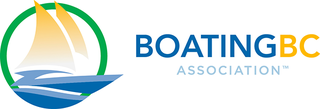SAFE BOATING WEEK
May 18-24, 2024 marks Safe Boating Awareness Week, a critical initiative for the safety of the over 16 million individuals enjoying Canadian waters. The 2024 campaign continues to target Canadian boaters, though it will feature several new aspects.
As boating season begins to ramp up, not all regions have fully opened, leading to varying levels of activity on the waters. As we approach Safe Boating Awareness Week, we aim to emphasize our five essential safety messages.
One immediate concern is the lower number of boaters currently on the water, which could mean reduced nearby assistance if you encounter problems. Additionally, any incidents may disproportionately strain rescue operations.
The CSBC has outlined the following key messages for this season’s Safe Boating Awareness Week:
Wear Your Lifejacket - Sadly, over 80% of drowning victims in Canada were not wearing their lifejackets, or wore them incorrectly. The market now offers a wide variety of lifejackets and personal flotation devices, making it easier to find one that fits your boating style and is comfortable to wear throughout your time on the water.
Boat Sober - Operating a boat under the influence of alcohol, cannabis, or prescription drugs is not only dangerous but also illegal. In some provinces, a conviction for impaired boating can affect your car driving privileges.
Take a Boating Course - Operators of powered recreational vessels are required to have a Pleasure Craft Operator Card or equivalent proof of competency. However, just obtaining the card is the beginning. We recommend pursuing further specialized training. For enthusiasts of paddle sports, now is an ideal time for on-water training. Beginners should consider starting with online resources to learn about responsible paddle craft boating, though these are not substitutes for practical training.
Be Prepared, You and Your Vessel - Ensure both you and your vessel are ready for your planned activities. This includes being informed about your trip, ensuring your boat is equipped with necessary and additional recommended safety gear, checking that weather conditions are favorable, ensuring adequate fuel supplies, and filing a trip plan. Remember, staying out of trouble not only keeps you safe but also eases the load on rescue services.
Be Cold Water Safe - Cold water can drastically reduce your ability to swim or stay afloat. Even experienced swimmers are vulnerable to the effects of sudden immersion in cold water. Wearing a lifejacket is your best defense against cold-water immersion risks.
These initiatives are designed to ensure a safer boating experience for everyone involved.
RESPONSIBLE BOATING
BE A GOOD BOATER!
We share our waterways with large boats and small, and not just pleasure craft, but commercial and industrial vessels, and even cruise ships, ferries and SeaBus. And while our waters are open to everyone, that doesn’t mean it’s open season to operate without consideration for others, and the environment. Before you head out, familiarize yourself with the finer points of boating etiquette, as well as best practices for environmentally responsible ‘green boating’ as well as protecting our marine mammals by staying the minimum distance away from endangered whales and other species. And most of all, we believe that an informed, confident boater is a safe boater, so we recommend a range of training courses all year round.
TRANSPORT CANADA'S WEBSITE:
-Preparing to operate your vessel
 |
HAVE A QUESTION?If you still have questions, let us know, we’ll get the answer for you. |
The Wave
Nam dignissim dolor est, ac blandit dolor pretium id. Proin eget massa id mi luctus mattis.
<>>





